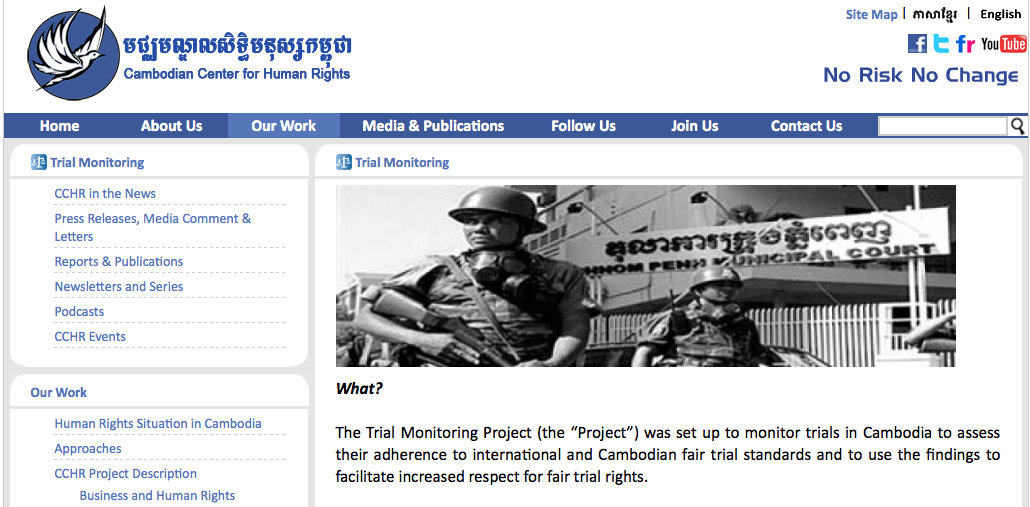
World Justice Forum IV participant Sopheap Chak introduces us to the Cambodia Center for Human Rights, an initiative working to cultivate the rule of law where it is struggling to take root.
Cambodia is a transitional society where democracy and the rule of law remain fragile. The judiciary is seen as the most corrupt national institution and the courts are regularly used to silence criticism of the political elite and to protect well-connected violators of human rights.
The functioning of the judiciary has been among the major human rights concerns in Cambodia for some time, central as it is to the protection and enforcement of other rights. On a 2010 visit to Cambodia, the United Nations ("UN") Special Rapporteur for Human Rights in Cambodia, Surya Subedi focused on the judiciary, setting out some familiar concerns: "A combination of a lack of adequate resources, organizational and institutional shortcomings, a lack of full awareness of the relevant human rights standards, and external interference, financial or otherwise, in the work of the judiciary, has resulted in an institution that does not command the confidence of people from many walks of life."
Past efforts to promote legal and judicial reform have also suffered from a lack of quality data analysis, resulting in an over-reliance on anecdotal evidence, which has restricted the ability of those interested in reform to engage in sophisticated advocacy. The Cambodian Center for Human Rights (CCHR) commenced a pilot trial monitoring project in July 2009 with the aim of plugging these gaps and providing a strong foundation for evidence-based advocacy and CCHR's Trial Monitoring Project ("TMP") continues to monitor trials today, primarily at the Court of Appeal, but also certain cases at first instance courts, when the case is deemed to be of significant importance or wider public interest.
As well as monitoring the trials and collecting the relevant information, CCHR's trial monitors engage in dialogues with judicial stakeholders, including judges and court presidents, before the publication of each report. These dialogues are a key part of the process adopted by the TMP and they provide an opportunity to discuss the concerns that emerge from the information collected by trial monitors and to formulate realistic and achievable recommendations.
For more background about the project and how it works, click here.
All data findings collected from the trial monitoring are published in a form of semi-annual reports and they are available here.
How to develop a trial monitoring project, there is available guideline produced by the CCHR. Click here.
The Project is soon to launch its online trial monitoring database available on CCHR's award-winning human rights web portal "Sithi", so that the general public can access and refer to it as required.








